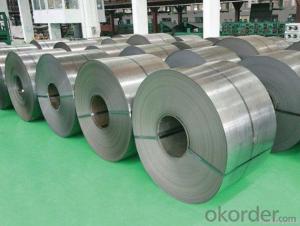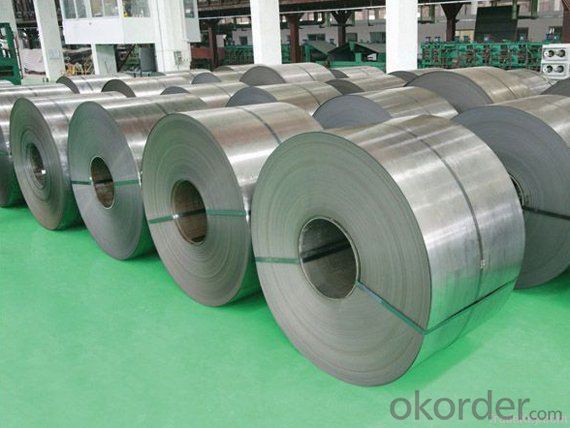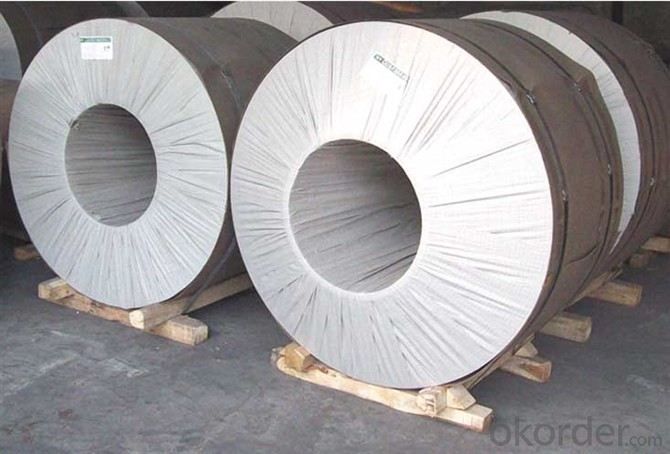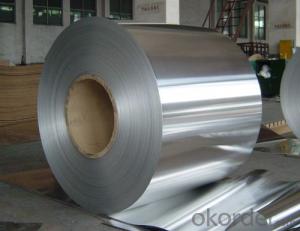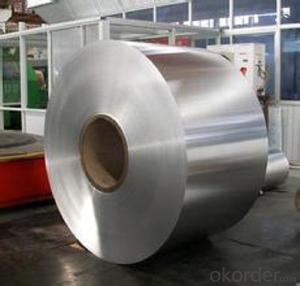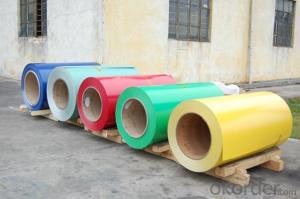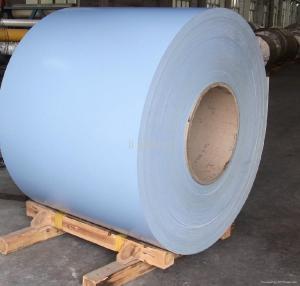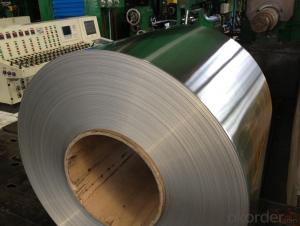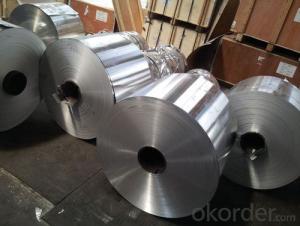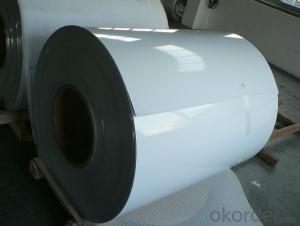1050 Aluminum Coils for Curtain Wall Materials Production
- Loading Port:
- Shanghai
- Payment Terms:
- TT OR LC
- Min Order Qty:
- 2 m.t.
- Supply Capability:
- 60000 m.t./month
OKorder Service Pledge
OKorder Financial Service
You Might Also Like
Specification
Aluminium Coil For Curtain Wall Materials Production
Alloy | 1050, 1060,1100, 3003 3004 3105 3A21 5005 5052 etc |
Temper | O/H12/H14/H1/H18/H32/H34/H36/H38//H111/H112/H116/H321/T6/T651/T3/T351 etc |
Thickness | 0.1mm to 6mm |
Width | 20mm to 3300mm |
Coil weight | 100kgs to 6 tons depends on actual requirement |
Core material | Aluminum or paper |
Coil inner diameter | 75mm, 150mm, 200mm, 300mm, 405mm, 505mm or as required |
Appplication | construction, roofing, decoration, lamping etc |
Package | eye to wall or eye to the wall for aluminum coil with wood pallet (wooded case also available) |
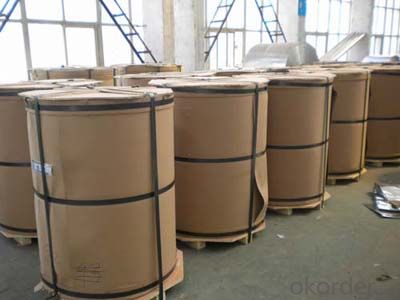
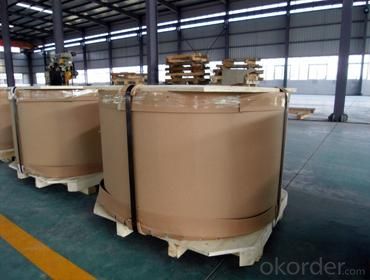
3) Glass curtain wall frame
4) Interior decoration
5) Elevator decoration
6) Signs, nameplate, bags making.
7) Automobile parts material
8) Office and Household appliances: HVAC equipments
9) The consumer electronics: mobile phones, digital cameras, MP3 .etc.
Coating varieties
Polyester Coatings (PE)
PE (polyester) coatings exhibit an excellent combination of hardness, flexibility, flow, appearance, and superior resistance to dirt retention in indoor and outdoor applications. These coatings are highly resistant to abrasion, metal marking, staining, and marring, and require minimal maintenance. Glazetech uses polyester paints which provide excellent colour and gloss retention properties.
Polyvinylidene Fluoride Coatings (PVDF)
PVDF (polyvinylidene fluoride) is a chemical resistant thick film barrier coating commonly used in architectural applications where both excellent appearance and substrate protection must be maintained over a long period of time. This coating is unaffected by most chemicals and solvents and has excellent wear and abrasion resistance. PVDF also has a high dielectric strength, excellent resistance to weathering and the ability to self extinguish.
FAQ
--Q: Do you provide free samples?
--A: Yes, free samples will be sent to you on freight at destination.
--Q: Can I get your latest products catalogue?
--A: Yes, it will be sent to you in no time.
--Q: What is the MOQ?
--A: 2 tons
--Q: What are your payment terms?
--A: We accept L/C, T/T.
--Q: What kinds of alloy can you supply?
--A: 1000 series: 1050, 1060, 1070, 1100, 1145, 1200
3000 series: 3003, 3004, 3105, 3104
5000 series: 5052, 5083, 5754, 5182
6000 series: 6061, 6063, 6062, 6063
8000 series: 8011, 8021
--Q: What’s the coating of top side?
--A: PVDF and PE coating
--Q: What kinds of temper can you supply?
--A: O-H112: O,H12,H14,H16,H18,H22,H24,H26,H,32,H34,H111,H112
T3, T4, T6
- Q: Can aluminum coils be used in HVAC heat exchangers?
- Yes, aluminum coils can be used in HVAC heat exchangers. Aluminum is a popular choice for heat exchangers due to its excellent thermal conductivity, light weight, and corrosion resistance. Aluminum coils are often used in air conditioning systems and heat pumps, where they transfer heat efficiently between the refrigerant and the surrounding air. Additionally, aluminum coils are easier to shape and form, allowing for more intricate designs and better heat transfer performance. Overall, aluminum coils are a reliable and effective choice for HVAC heat exchangers.
- Q: How do aluminum coils contribute to the sound insulation of buildings?
- Aluminum coils contribute to the sound insulation of buildings by acting as a barrier or shield against sound transmission. The coils are often used in the construction of windows, doors, and other building components to dampen or block noise from entering or exiting a space. Their properties, such as their density and ability to reflect or absorb sound waves, help reduce the level of noise that can pass through the building envelope, resulting in improved sound insulation.
- Q: Can aluminum coil 3003H24 replace 3A21H14?
- Yes.
- Q: How are aluminum coils tested for surface roughness?
- Various methods are employed to test the surface roughness of aluminum coils, guaranteeing that they meet the necessary quality standards. One frequently utilized technique involves the utilization of a surface roughness tester or profilometer. This device gauges the roughness of the coil surface by tracing a stylus or probe across it and recording the height variations. The surface roughness tester furnishes data such as Ra (average roughness), Rz (average peak-to-valley roughness), and Rt (total height roughness). These parameters aid in evaluating the surface quality of the aluminum coil and ascertaining whether it adheres to the desired specifications. Additionally, visual inspection is commonly performed to identify any visible defects, scratches, or irregularities on the surface. This inspection can be carried out manually by trained operators or with the assistance of automated systems that employ cameras and image analysis algorithms to detect imperfections. Another method utilized to assess surface roughness involves the use of laser scanners. These scanners emit laser beams that bounce off the surface of the aluminum coil and are subsequently measured to determine the surface profile and roughness. Laser scanners offer high-resolution, contactless measurements, rendering them highly accurate and efficient for evaluating surface roughness. All in all, a combination of surface roughness testers, visual inspection, and laser scanners are typically employed to test the surface roughness of aluminum coils, guaranteeing that they meet the necessary quality standards for diverse applications.
- Q: How much cube is the 0.9mm aluminum rolling?
- This is a common problem. Anyone who had received high school education can calculate it very quickily. One way is to calculate sectional area with circular area, then times the thickness of the aluminum rolling. Another way is to use the outer diameter circular area to subtract the core area and then times the thickness of aluminum rolling.
- Q: How are aluminum coils tested for quality assurance?
- Aluminum coils are tested for quality assurance through various methods such as visual inspections, dimensional checks, mechanical testing, and chemical analysis. These tests ensure that the coils meet the required specifications and standards, ensuring their quality, durability, and performance.
- Q: Are aluminum coils suitable for HVAC ductwork?
- Indeed, HVAC ductwork can be furnished with aluminum coils. The lightweight and corrosion-resistant attributes of aluminum coils render them the preferred choice for HVAC ductwork. These coils possess exceptional durability, enabling them to endure extreme temperatures and weather conditions. Additionally, aluminum coils exhibit remarkable thermal conductivity, facilitating efficient heat transfer and ensuring optimal cooling or heating efficacy. Furthermore, aluminum represents a non-toxic material, guaranteeing the safety of its employment in HVAC systems. All in all, aluminum coils serve as an ideal option for HVAC ductwork, furnishing enduring performance and energy efficiency.
- Q: How do aluminum coils perform in coastal areas with high salt content?
- Aluminum coils perform relatively well in coastal areas with high salt content due to their inherent corrosion resistance. Aluminum has a natural oxide layer that forms on its surface, providing a protective barrier against saltwater and preventing corrosion. This oxide layer is highly resistant to salt-induced corrosion, making aluminum coils suitable for coastal environments. However, it is important to note that saltwater can still have some corrosive effects on aluminum over time, especially in areas with constant exposure to salt spray and high humidity. To enhance the performance and longevity of aluminum coils in such coastal areas, additional protective measures can be taken, such as applying specialized coatings or utilizing alloys with higher corrosion resistance. Regular maintenance and cleaning of the coils are also essential to remove any salt deposits that may accumulate on the surface. This can be done by rinsing the coils with fresh water periodically to remove salt residue. Additionally, avoiding the use of abrasive cleaners or harsh chemicals is crucial to prevent any damage to the protective oxide layer. Overall, while aluminum coils offer good resistance to saltwater corrosion, proper care and maintenance are still necessary to ensure optimal performance and prolong their lifespan in coastal areas with high salt content.
- Q: Can aluminum coils be used in electrical cables?
- Yes, aluminum coils can be used in electrical cables. Aluminum is a commonly used material for electrical conductors due to its excellent electrical conductivity and relatively low cost compared to copper. It is especially used in power transmission and distribution cables where long-distance transmission is required. Aluminum coils are often used in overhead power lines and underground cables. However, it is important to note that aluminum has a lower tensile strength than copper, so the cables need to be properly designed and manufactured to ensure adequate mechanical strength. Additionally, aluminum conductors require larger cross-sectional areas compared to copper to achieve the same electrical performance, which can result in slightly larger cable sizes.
- Q: Can aluminum coils be used in automotive heat shields?
- Yes, aluminum coils can be used in automotive heat shields. Aluminum is a commonly used material in the manufacturing of heat shields due to its excellent heat resistance and lightweight properties. Aluminum coils can be formed and shaped into the desired design, allowing for easy installation and customization in automotive applications. Additionally, aluminum has high thermal conductivity, which helps to dissipate heat effectively, making it an ideal choice for heat shields in vehicles.
Send your message to us
1050 Aluminum Coils for Curtain Wall Materials Production
- Loading Port:
- Shanghai
- Payment Terms:
- TT OR LC
- Min Order Qty:
- 2 m.t.
- Supply Capability:
- 60000 m.t./month
OKorder Service Pledge
OKorder Financial Service
Similar products
Hot products
Hot Searches
Related keywords
